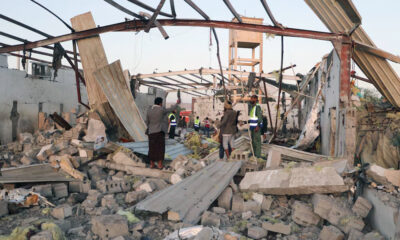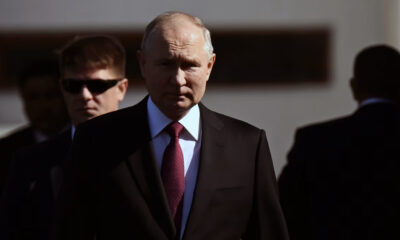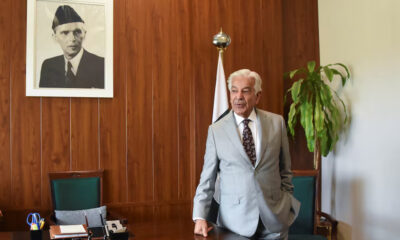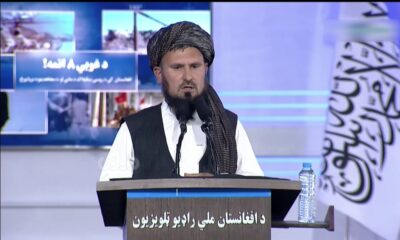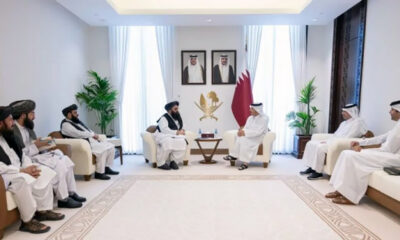Regional
Iran keeping ‘door open’ to talks with Trump
Iran’s deputy foreign minister said that coercion and intimidation would prove ineffective in the long-running stand-off between Iran and the West over Tehran’s nuclear programme
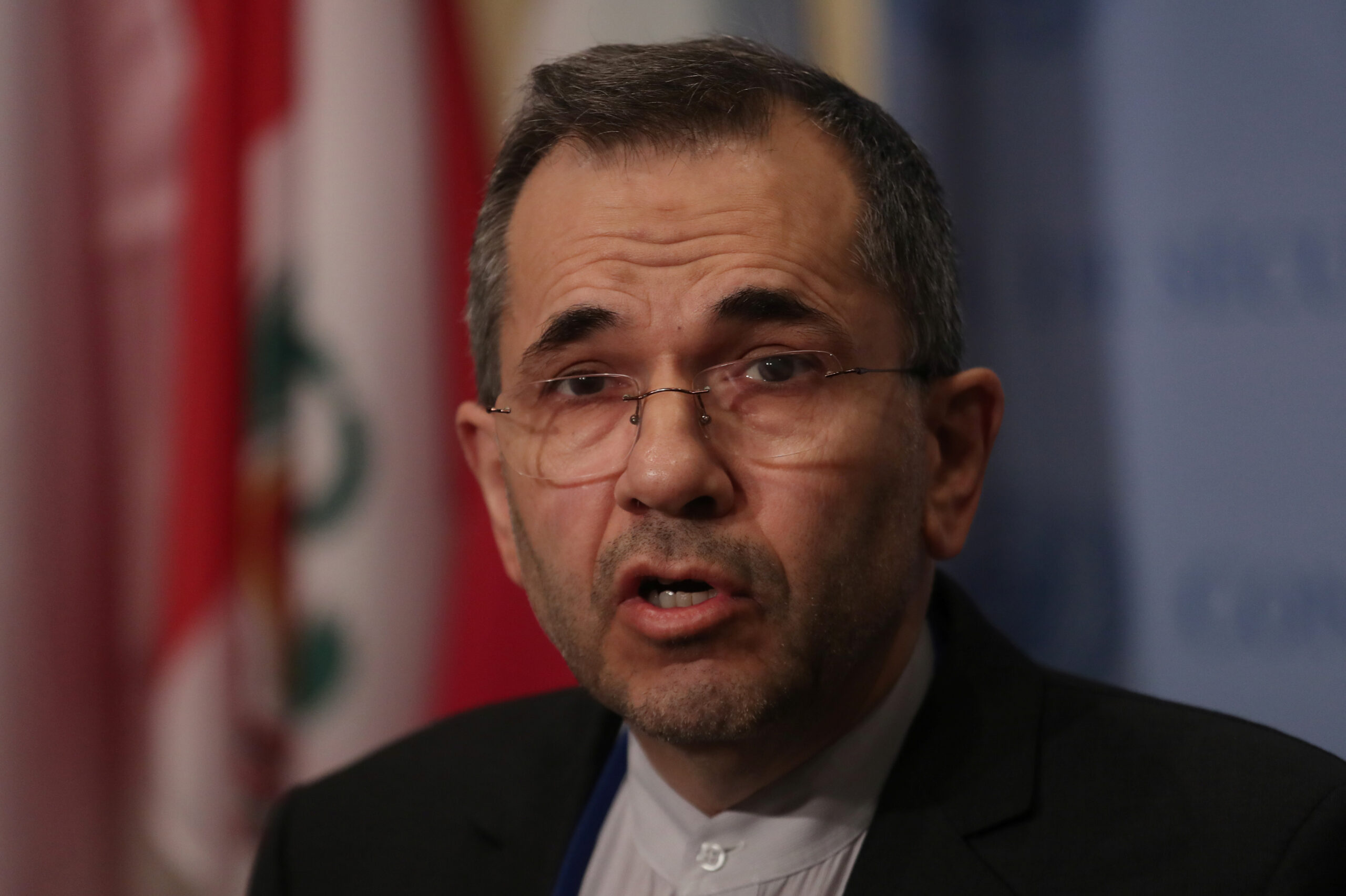
Majid Takht-Ravanchi, Iran’s deputy foreign minister for political affairs says Tehran has kept the door open to negotiations with President-elect Donald Trump’s administration, while warning the US that any attempt to reimpose “maximum pressure” on the country would fail to extract concessions.
Speaking to the Financial Times, Takht-Ravanchi said that coercion and intimidation would prove ineffective in the long-running stand-off between Iran and the West over Tehran’s nuclear program.
“As for negotiations, we need to observe US policy and decide how to respond accordingly,” Takht-Ravanchi said.
“Right now, the key question is how the new administration will approach Iran, the nuclear issue, regional security and the Middle East. It’s premature to speculate about specific outcomes.”
Takht-Ravanchi said the nuclear deal reached with the West in 2015, from which Trump later withdrew the US, “could still serve as a foundation and be updated to reflect new realities”, adding that “if the other parties return to their commitments, we have repeatedly said that we are willing to do the same”.
He added: “We do favour negotiations, as we proved [with that deal] . . . But who sabotaged the negotiations previously? It was the Trump administration who was unwilling to negotiate.”
At the same time, the veteran diplomat and former nuclear negotiator warned that if Trump again takes a tough approach, “maximum pressure will be met with maximum resistance”.
“We will continue to work around sanctions, diversify our trade partners and strengthen regional relations to maintain calm,” he added.
During his first term as US president, Donald Trump sparked a nuclear stand-off with Iran after he abandoned the 2015 accord, known as the JCPOA, that Tehran had signed with world powers, and imposed waves of sanctions on the Islamic republic in what he called a “maximum pressure” campaign.
He accused Tehran of violating the “spirit” of the agreement by funneling newfound revenue to support its regional proxies, notably Lebanon’s Hezbollah.
In retaliation, Iran dramatically expanded its nuclear activities, and is enriching uranium near to weapons-grade despite insisting its programme is for civilian purposes, Financial Times reported.
People familiar with Trump’s thinking have told the Financial Times his administration would try to “bankrupt” Iran to force the republic into talks.
The regional and nuclear crises have stoked fears in Tehran that Trump will once again try to drive Iran’s oil exports — its vital source of hard currency — to zero. In recent years Iran has substantially increased oil sales, mainly to China.
Takht-Ravanchi sought to downplay the potential for tighter oil sanctions under a second Trump presidency.
“While developments may occur, they won’t lead to significant changes,” he said, adding: “If the Trump administration decides to pursue the maximum pressure policy in the oil market again, it will surely fail. In today’s world, no single country can dictate terms to the entire international community.”
For now, he said, “We hope he doesn’t repeat the same mistake because the outcome will be no different.”
Regional
Pakistan defence minister says military incursion by India is imminent
China said on Monday it hoped for restraint and welcomed all measures to cool down the situation. Asif said the United States was thus far “staying away” from intervening in the matter.
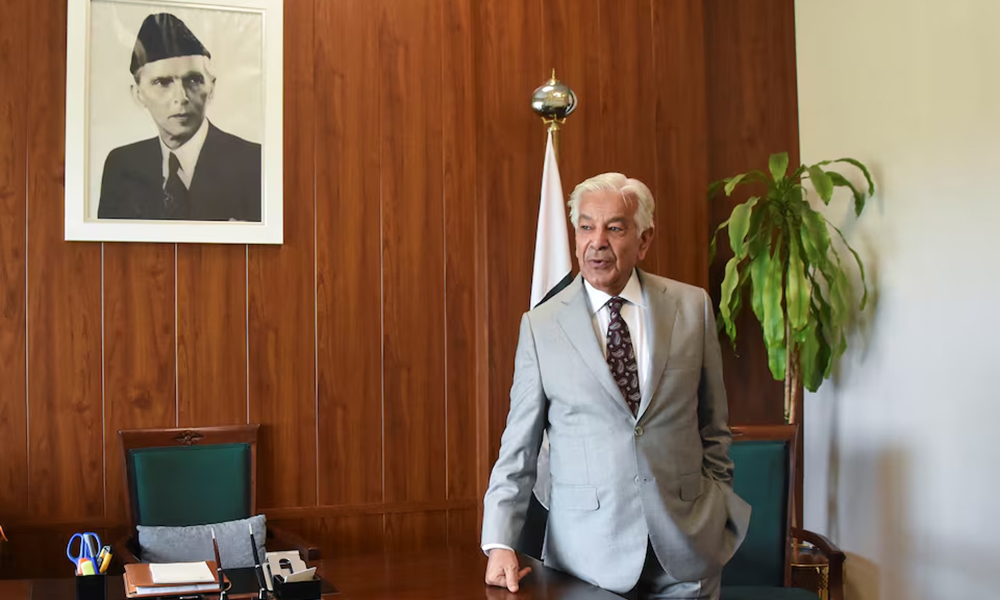
Pakistan’s defence minister said on Monday a military incursion by neighbouring India was imminent in the aftermath of a deadly militant attack on tourists in Kashmir last week, as tensions rise between the two nuclear-armed nations, Reuters reported.
The attack killed 26 people and triggered outrage in Hindu-majority India, along with calls for action against Muslim-majority Pakistan. India accuses Pakistan of backing militancy in Kashmir, a region both claim and have fought two wars over.
“We have reinforced our forces because it is something which is imminent now. So in that situation some strategic decisions have to be taken, so those decisions have been taken,” Defence Minister Khawaja Muhammad Asif told Reuters in an interview at his office in Islamabad.
Asif said India’s rhetoric was ramping up and that Pakistan’s military had briefed the government on the possibility of an Indian attack. He did not go into further details on his reasons for thinking an incursion was imminent.
India’s foreign and defence ministries did not immediately respond to requests for comment, read the report.
After the Kashmir attack, India said two suspected militants were Pakistani. Islamabad has denied any role and called for a neutral investigation.
Indian Prime Minister Narendra Modi has vowed to pursue and punish the attackers.
Pakistan was on high alert but would only use its nuclear weapons if “there is a direct threat to our existence,” said Asif, a veteran politician and outspoken member of the ruling Pakistan Muslim League-Nawaz party, which has historically pursued peace talks with India.
The minister added that Islamabad had approached friendly countries, including Gulf states and China, and also briefed Britain, the United States and others on the situation, Reuters reported.
“Some of our friends in the Arabian Gulf have talked to both sides,” Asif said, without naming the countries.
China said on Monday it hoped for restraint and welcomed all measures to cool down the situation. Asif said the United States was thus far “staying away” from intervening in the matter.
U.S. President Donald Trump said last week India and Pakistan would figure out relations between themselves, but the State Department later said Washington was in touch with both sides, urging them to work towards a “responsible solution”.
Washington has previously helped calm tensions between the two countries, which both gained independence in 1947 when a retreating British colonial administration partitioned the subcontinent into two states, read the report.
Delhi and Islamabad have taken a raft of measures against each other since the Kashmir attack. India has suspended the Indus Waters Treaty – an important river-sharing pact. Pakistan has closed its airspace to Indian airlines.
Asif said it was an “act of war” to deprive vulnerable areas of water, and that the treaty, which has weathered past conflicts, was backed by international guarantors.
“We have already gone to relevant quarters as far this treaty is concerned,” he said, calling on the international community and the World Bank to protect the pact.
New Delhi has also accused Islamabad of backing the Islamist militants who had carried out the 2008 Mumbai attacks, which killed more than 166 people, including foreigners. Pakistan denies the accusations.
Regional
Death toll from blast at Iran’s Bandar Abbas port rises to 40
Government spokesperson Fatemeh Mohajerani cautioned against “premature speculation”, saying final assessments would be shared after investigations.
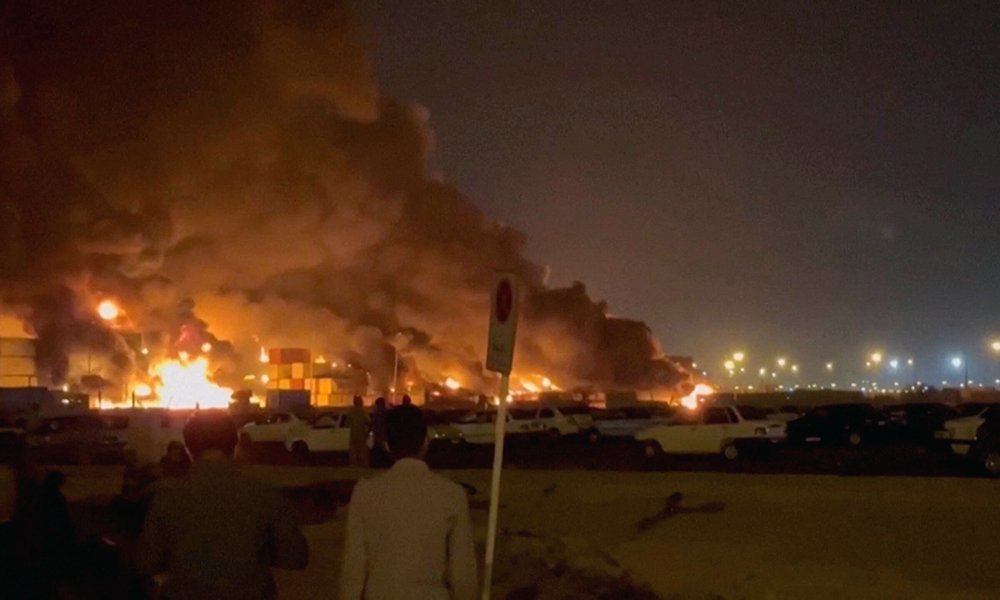
The death toll from a powerful explosion at Iran’s biggest port of Bandar Abbas has risen to at least 40, with more than 1,200 people injured, state media reported on Sunday, as firefighters worked to fully extinguish the fire, Reuters reported.
Saturday’s blast took place in the Shahid Rajaee section of the port, Iran’s biggest container hub, shattering windows for several kilometres around, tearing metal strips off shipping containers and badly damaging goods inside, state media said.
The incident occurred as Iran held a third round of nuclear talks with the United States in Oman.
Fires kept breaking out in different parts of the affected area as of Sunday night, according to state media, with helicopters and fire fighters continuing efforts to extinguish them.
Chemicals at the port were suspected to have fuelled the explosion, but the exact cause was not clear and Iran’s Defence Ministry denied international media reports that the blast may be linked to the mishandling of solid fuel used for missiles.
A spokesperson for the ministry told state TV the reports were “aligned with enemy psyops”, saying that the blast-hit area did not contain any military cargo.
The Associated Press cited British security firm Ambrey as saying the port in March had received sodium perchlorate, which is used to propel ballistic missiles and whose mishandling could have led to the explosion.
The Financial Times newspaper reported in January the shipment of two Iranian vessels from China containing enough of the ingredient to propel as many as 260 mid-range missiles, helping Tehran to replenish its stocks following its direct missile attacks on its arch-foe Israel in 2024.
Plumes of black smoke rose above the site on Sunday and pieces of twisted metal and debris lay scattered across the blast site, read the report.
By early afternoon, the head of Iran’s Red Crescent Society told state media the fire was 90% extinguished and officials said port activities had resumed in unaffected parts of Shahid Rajaee.
A spokesperson for the country’s crisis management organisation appeared on Saturday to blame the explosion on poor storage of chemicals in containers at Shahid Rajaee, adding that earlier warnings had highlighted potential safety risks.
Government spokesperson Fatemeh Mohajerani cautioned against “premature speculation”, saying final assessments would be shared after investigations.
Negligence has often been blamed in a series of deadly incidents that have hit Iranian energy and industrial infrastructure in recent years.
“Did we really have to hold the container here for 3-4 months… until we had 120-140 thousand containers stored in this place?”, Iran’s President Masoud Pezeshkian said after arriving in Bandar Abbas on Sunday.
Incidents in the country have included refinery fires, a gas explosion at a coal mine, and an emergency repair incident at Bandar Abbas that killed one worker in 2023.
Iran has blamed some other incidents on Israel, which has carried out attacks on Iranian soil targeting Iran’s nuclear programme in recent years and last year bombed the country’s air defences.
Regional
Panic in Pakistan as India vows to cut off water supply over Kashmir
Islamabad has denied any role and said “any attempt to stop or divert the flow of water belonging to Pakistan … will be considered as an Act of War”.
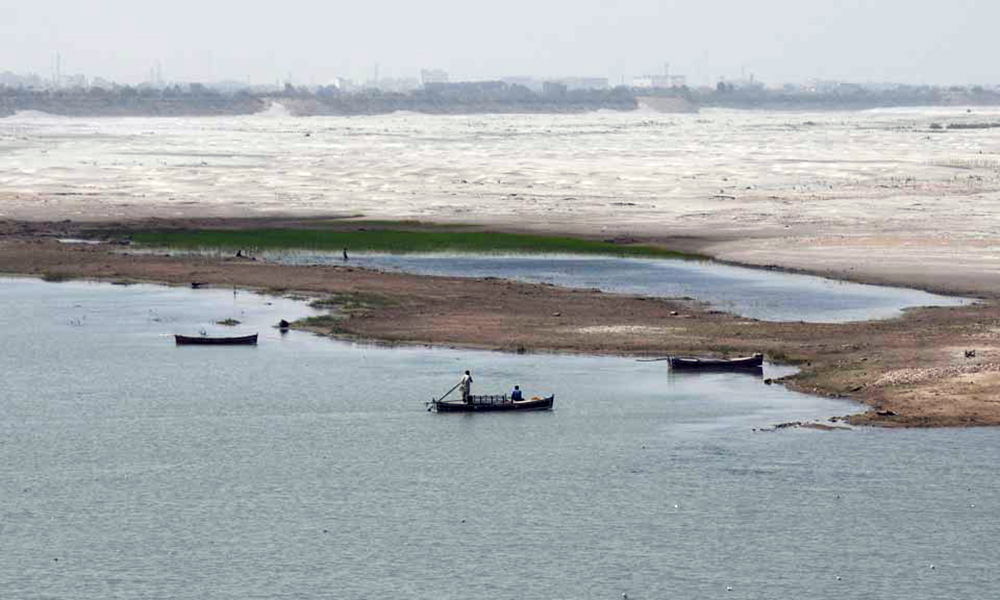
Pakistani farmers have voiced concern about future water supplies after India on Wednesday suspended the World Bank-mediated Indus Waters Tropy of 1960, which ensures water for 80% of Pakistan’s farms.
India said the suspension would last until “Pakistan credibly and irrevocably abjures its support for cross-border terrorism”.
This move comes after last week’s attack in Kashmir. India has accused Pakistan of having been involved, stating two of the three militants who attacked tourists and killed 26 men were from Pakistan.
Islamabad has denied any role and said “any attempt to stop or divert the flow of water belonging to Pakistan … will be considered as an Act of War”.
The treaty split the Indus and its tributaries between the nuclear-armed rivals.
Government officials and experts on both sides say India cannot stop water flows immediately, because the treaty has allowed it to only build hydropower plants without significant storage or dams on the three rivers allocated to Pakistan. But things could start changing in a few months, Reuters reported.
“We will ensure no drop of the Indus River’s water reaches Pakistan,” India’s water resources minister, Chandrakant Raghunath Paatil, said on X.
He did not respond to questions about the fears in Pakistan.
Two Indian government officials, who declined to be identified, said the country could within months start diverting the water for its own farms using canals while planning hydroelectric dams that could take four to seven years to finish.
Immediately, India will stop sharing data like hydrological flows at various sites of the rivers flowing through India, withhold flood warnings and skip annual meetings under the Permanent Indus Commission headed by one official each from the two countries, said Kushvinder Vohra, a recently retired head of India’s Central Water Commission.
“They will not have much information with them when the water is coming, how much is coming,” said Vohra, who was also India’s Indus Commissioner and now advises the government occasionally.
“Without the information, they cannot plan.”
And it is not just agriculture, a shortage of water will also hit electricity generation and potentially cripple the economy, economists say.
Vaqar Ahmed, economist and team lead with UK consulting firm Oxford Policy Management, said that Pakistan had underestimated the threat of India walking away from the treaty.
“India hasn’t got the kind of immediate infrastructure to halt the waterflows, especially during flood times, so this period creates a crucial window for Pakistan to address the inefficiencies in its water sector,” he said.
“There are a lot of inefficiencies, leakages.”
In recent years, Indian Prime Minister Narendra Modi’s government has been seeking to renegotiate the treaty and the two countries have been trying to settle some of their differences in the Permanent Court of Arbitration in the Hague over the size of the Kishenganga and Ratle hydroelectric plants’ water storage area, Reuters reported.
“We can now pursue our projects in free will,” said Vohra.
In a letter on Thursday, India told Pakistan that circumstances had changed since the treaty was signed, including population increases and the need for more cleaner energy sources, referring to hydropower.
-

 Latest News5 days ago
Latest News5 days agoTarig Ali Bakheet and Japan’s Deputy Foreign Minister discuss Afghanistan’s situation
-

 Business5 days ago
Business5 days agoPakistan’s deputy PM discusses Trans-Afghan Railway Line project with Uzbek FM
-

 Latest News4 days ago
Latest News4 days agoAfghanistan’s medicine output reaches 900 types: Pharma Union
-

 Latest News5 days ago
Latest News5 days agoAfghan delegation to participate in Iran’s international expo
-

 Latest News5 days ago
Latest News5 days agoWFP appeals for $25 million to help support Afghan returnees amid humanitarian crisis
-
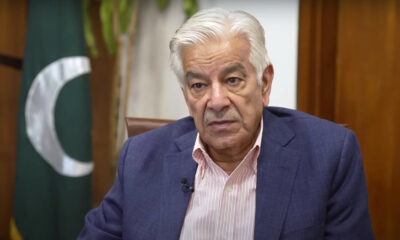
 Latest News4 days ago
Latest News4 days agoTerrorist attacks in Pakistan originate from Afghanistan: Khawaja Asif
-
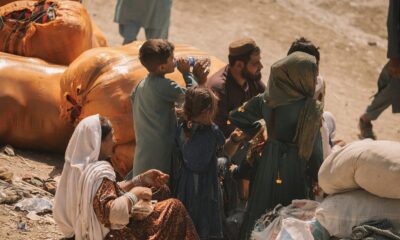
 Latest News4 days ago
Latest News4 days agoRegistered Afghan refugees must return by June 30 or face deportation: Pakistani official
-

 Latest News5 days ago
Latest News5 days ago14 kms of TAPI pipeline laid inside Afghanistan, says project manager


